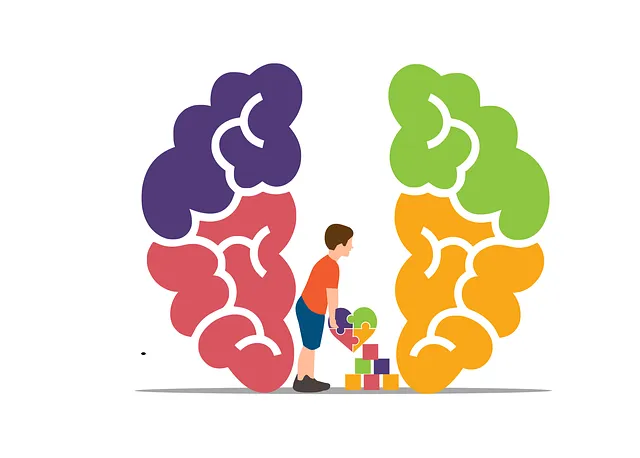Community-driven public awareness campaigns, exemplified by the Lakewood Kaiser Permanente Mental Health Access Center, significantly address mental health challenges by understanding and catering to diverse community needs. The center's inclusive initiatives, such as tailored education and risk management planning, have led to improved access and reduced stigma. Through effective collaboration, storytelling, digital platforms, and continuous evaluation, these campaigns reach broader audiences, foster empathy, and provide valuable resources for navigating life challenges.
Public awareness campaigns play a pivotal role in addressing societal challenges, such as mental health issues. This article explores the development of impactful campaigns, from understanding community needs to leveraging digital platforms. We delve into successful collaborations, like the partnership between Lakewood Kaiser Permanente and the mental health access center, showcasing effective strategies for engaging content creation and online reach. Additionally, we discuss measurement techniques to evaluate campaign success and emphasize the iterative process for continuous improvement in public awareness efforts.
- Understanding Community Needs: A Basis for Effective Campaign Development
- The Role of Collaboration: Partnering with Lakewood Kaiser Permanente for Mental Health Initiatives
- Crafting Engaging Content: Strategies for Raising Awareness about Mental Health Resources
- Utilizing Digital Platforms: Reaching a Wider Audience through Online Campaigns
- Measuring Impact and Iteration: Evaluating the Success of Public Awareness Efforts at the Access Center
Understanding Community Needs: A Basis for Effective Campaign Development

Understanding the unique needs and challenges of a community is paramount when developing public awareness campaigns. By gauging the local landscape, campaign creators can ensure their messages resonate with the target audience. For instance, the Lakewood Kaiser Permanente Mental Health Access Center highlights the importance of tailored initiatives. The center serves a diverse population, necessitating inclusive mental health awareness programs that cater to various cultural and socio-economic backgrounds.
This approach is crucial in addressing mental health issues effectively. Integrating strategies such as Risk Management Planning for Mental Health Professionals and designing Mental Health Education Programs can empower communities. Promoting positive thinking and resilience through these campaigns fosters a supportive environment, encouraging individuals to seek help without stigma. Such initiatives ultimately contribute to improved access to mental health services, as evidenced by the center’s successful outreach efforts.
The Role of Collaboration: Partnering with Lakewood Kaiser Permanente for Mental Health Initiatives

The success of public awareness campaigns on mental health often hinges on collaboration with established healthcare institutions. One notable example is the partnership between Lakewood Kaiser Permanente and community organizations to enhance mental well-being. By joining forces, they’ve developed innovative programs aimed at breaking down stigma and improving access to care. This collaboration has led to the creation of a dedicated Lakewood Kaiser Permanente mental health access center, offering a range of services tailored to diverse needs.
This partnership demonstrates the power of community outreach program implementation and burnout prevention strategies for healthcare providers. Through joint efforts, they’ve been able to promote coping skills development, ensuring individuals have the tools to navigate life’s challenges effectively. This model highlights how public-private partnerships can significantly impact mental health initiatives, fostering a supportive environment where everyone has access to essential resources.
Crafting Engaging Content: Strategies for Raising Awareness about Mental Health Resources

Crafting compelling content is a vital aspect of successful public awareness campaigns, especially when addressing sensitive topics like mental health. When creating campaigns aimed at raising awareness about resources such as the Lakewood Kaiser Permanente Mental Health Access Center, it’s crucial to engage and connect with the target audience on an emotional level. One effective strategy is storytelling—sharing personal narratives can humanize the issue and foster empathy. For instance, sharing stories of individuals who have successfully navigated mental health challenges through the center’s support can inspire hope and encourage others to seek help.
Visuals play a significant role in capturing attention. Infographics, videos, and powerful imagery can simplify complex issues and make them more accessible. By combining these visual elements with clear and concise messaging, campaigns can effectively communicate the availability and accessibility of mental health resources. Additionally, incorporating interactive components like quizzes or challenges related to self-esteem improvement can enhance engagement, making the awareness campaign memorable and impactful.
Utilizing Digital Platforms: Reaching a Wider Audience through Online Campaigns

In today’s digital era, public awareness campaigns can effectively reach a wider audience through online platforms. Utilizing social media, websites, and email newsletters, organizations like Lakewood Kaiser Permanente Mental Health Access Center can amplify their message on mental health access and promote self-awareness exercises. By leveraging these digital tools, they can engage folks from diverse backgrounds, fostering empathy building strategies and emotional healing processes.
Online campaigns offer the advantage of targeting specific demographics and providing personalized content. For instance, social media platforms allow for interactive sessions where users can share their stories and learn about available resources. Additionally, digital advertising ensures that important messages reach those who might not typically engage with traditional media, making mental health support more accessible to everyone, including those in remote areas or facing stigma.
Measuring Impact and Iteration: Evaluating the Success of Public Awareness Efforts at the Access Center

Evaluating the success of public awareness campaigns is a crucial step in understanding their impact and identifying areas for improvement. At the Lakewood Kaiser Permanente mental health access center, this process involves assessing how well the initiatives reach and engage their target audience—folks seeking mental health support and resources. By measuring key metrics such as campaign reach, engagement levels, and changes in behaviors or attitudes related to mental health, researchers can gauge the effectiveness of various strategies.
This iterative approach allows for continuous refinement of public awareness efforts. For instance, if a particular campaign focused on Stress Reduction Methods proves highly successful in increasing awareness and encouraging community members to seek help, future initiatives could build upon this success by exploring more advanced Burnout Prevention Strategies for Healthcare Providers or focusing on specific mental health conditions prevalent in the Lakewood community.
Public awareness campaigns, as demonstrated by the successful collaboration between Lakewood Kaiser Permanente and the Mental Health Access Center, are pivotal in addressing community needs. By understanding target audiences, leveraging digital platforms, and crafting compelling content, these initiatives can significantly enhance mental well-being. The case study highlights the importance of strategic partnerships and iterative evaluation to ensure campaigns remain relevant and effective, ultimately fostering a healthier and more informed society.






